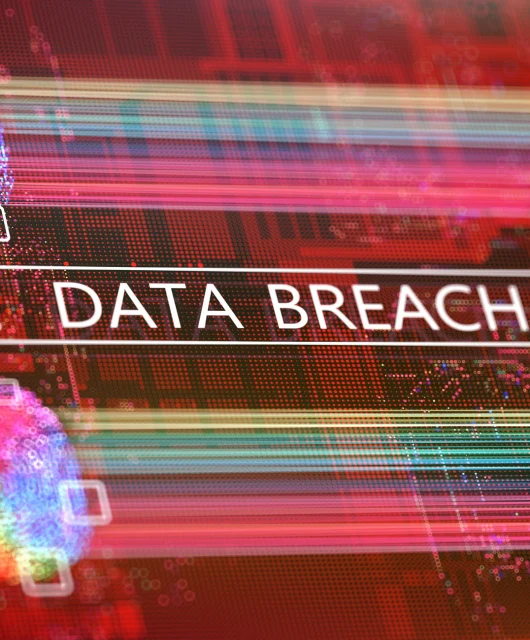There’s no doubt about it—today’s digital economy is booming. Between 2016 and 2020, internet usage increased by 30%, and the COVID-19 pandemic pushed the peak traffic growth rate to 47%. As the digital landscape continues to advance, questions of consumer data privacy are top of mind for many.
With our deepening reliance on digital media, we ran a survey to get a sense of Americans’ data privacy concerns amid today’s tech-driven world. We wanted to find out just how much people value their data privacy, so we surveyed 1,000 Americans on the matter. Here’s what we found:
- 80% say they value their data privacy more than keeping social media platforms free to use
- However, 72% aren’t willing to pay to protect their privacy
8 in 10 Americans say they value data privacy more than keeping social media free
Concern over data privacy isn’t a new concept, but steady increases in cybercrime over the years have shed more light on the matter that consumers aren’t blind to. For our survey, we first asked participants what’s more important to them: the privacy of their personal data, or keeping social media platforms free to use. 80% of respondents reported the privacy of their data is more important to them, while 20% chose keeping social media platforms free as more important.
Based on this statistic, it appears that Americans care very much about their privacy online. Additionally, another study found that 72% of Americans are “very concerned” to “extremely concerned” about their online privacy.
However, the majority are unwilling to pay to protect their privacy
We next asked respondents if they would pay a fee to use social media platforms if it meant their personal data remained private, and 72%—almost three quarters—said no. This data reveals an interesting discrepancy—while Americans report a desire for increased data privacy, it appears many aren’t willing to pay to protect it.
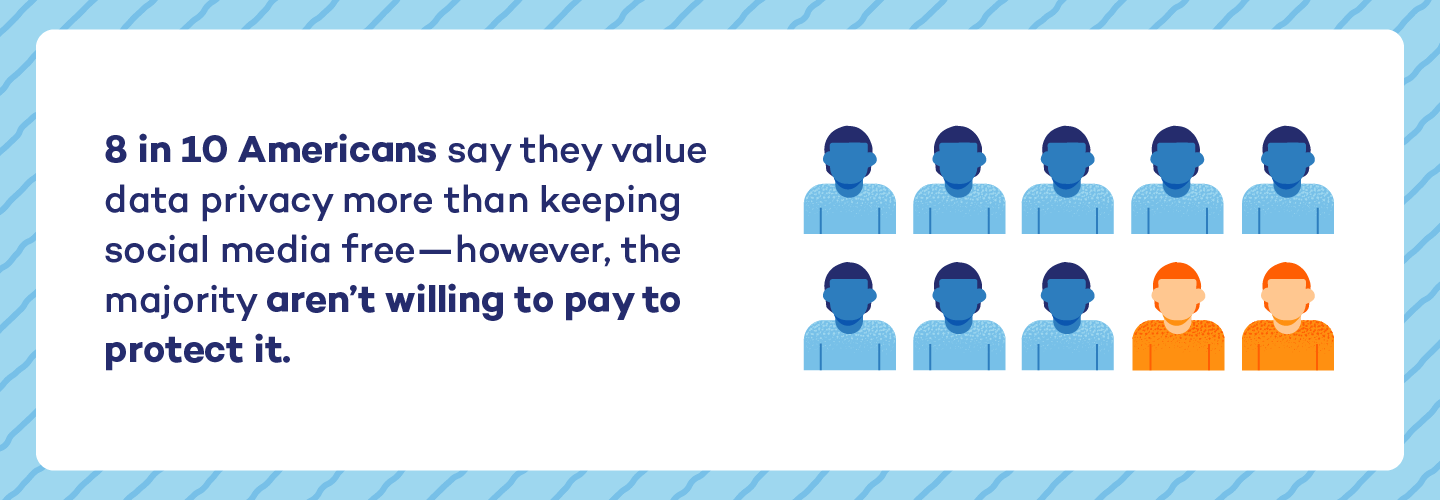
If Americans would rather hand over their personal information on social media platforms than have to start paying to use them, it raises the question of just how much Americans truly value data privacy.
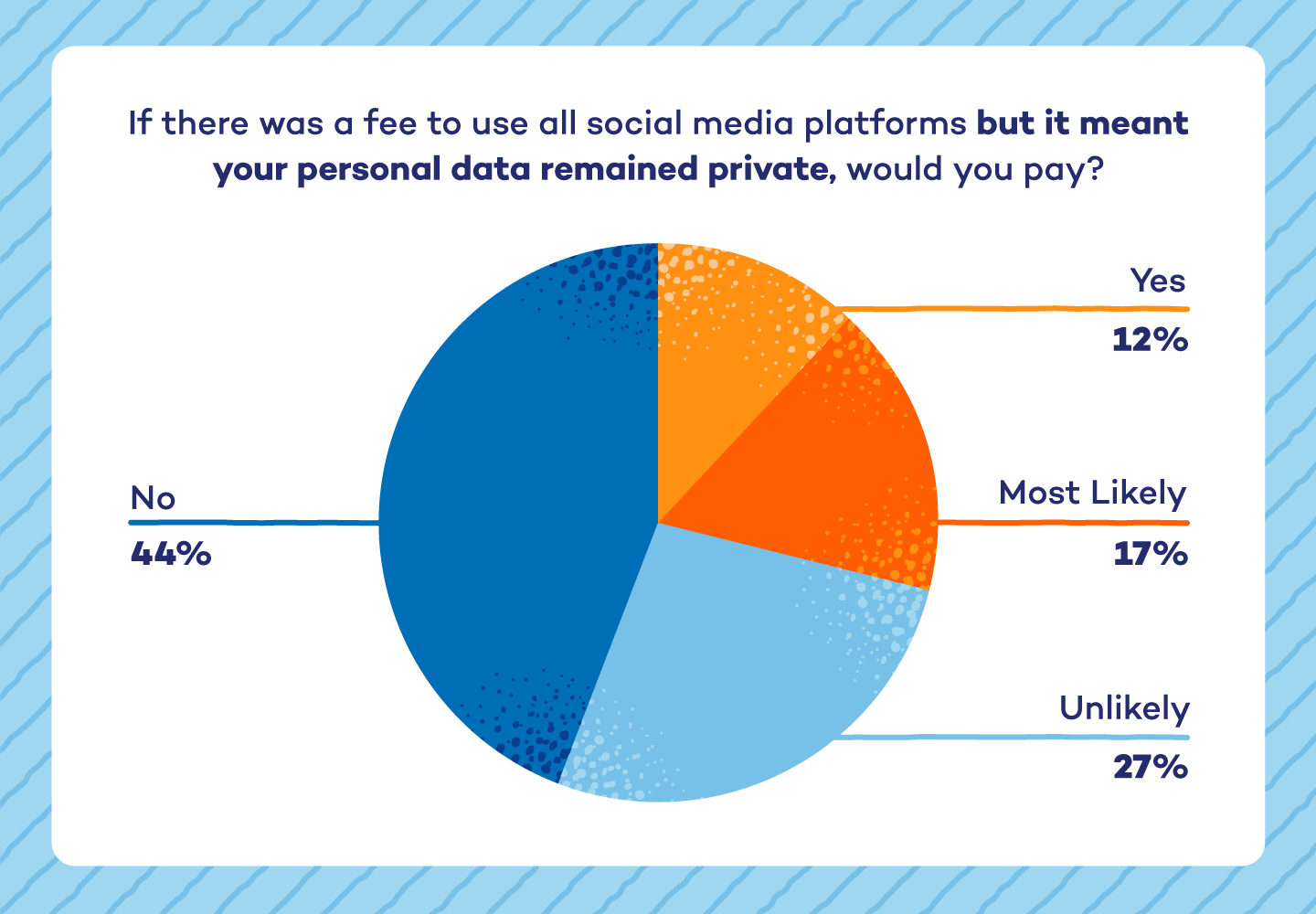
Why Data Privacy Matters
From ransomware attacks to phishing scams, hackers have become increasingly sophisticated in their ability to find and exploit weak spots in security systems. Much of the data we use online —like driver’s license numbers, bank account numbers, credit card accounts and medical records— are some of the most sensitive types of data we have. Any time we share this information online, there’s a chance it may be used maliciously by cybercriminals and bad actors looking to exploit it for their own personal gain.
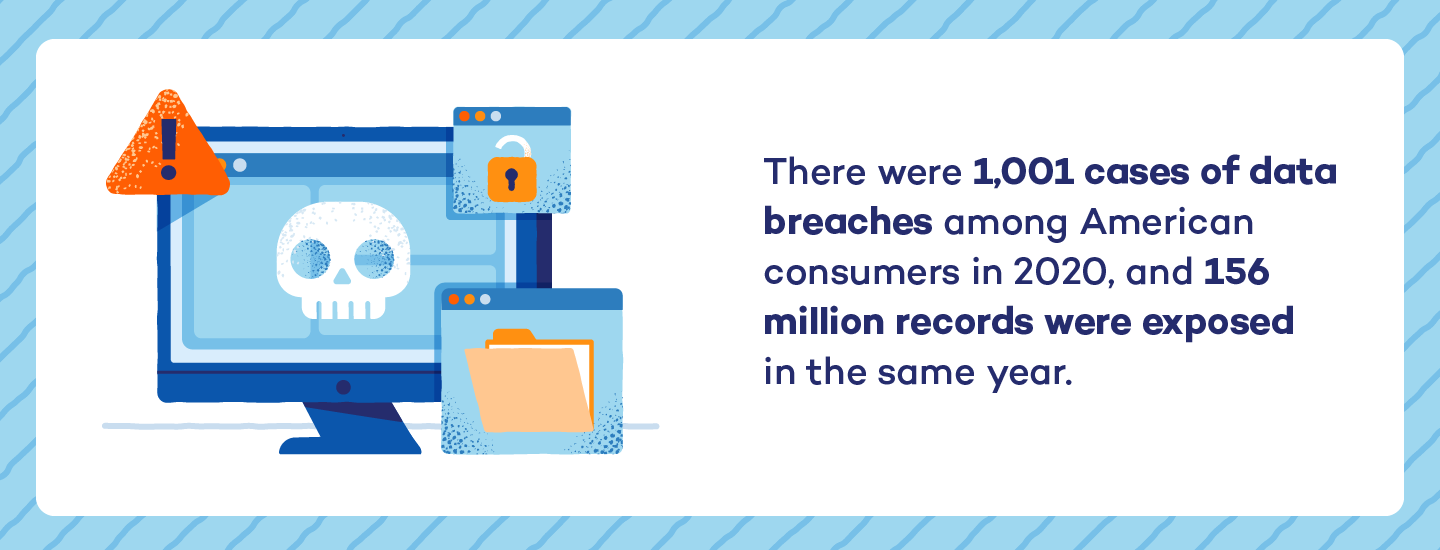
In fact, there were 1,001 cases of data breaches among American consumers in 2020 alone, and a staggering 156 million records were exposed in the same year. Unfortunately, breaches like this are only becoming more common. In May of 2020, for example, 33,000 unemployment applicants had their information exposed after a data security breach against the Pandemic Unemployment Assistance Program. Clearly, consumers and organizations alike need to take heed of proper security measures to avoid suffering the aftermath of a data breach.
How to Keep Your Data Protected
While it’s easy to think that only large corporations are the ones who need to worry about data privacy, this isn’t the case—no one is immune to cyberattacks or data theft, and even the most basic data like birth dates, phone numbers or email addresses can be used to steal your identity.
Stay On Top of Software Updates
Whenever new security vulnerabilities are discovered in a software, updates are released to patch any bugs or weak points found within the program. Software left outdated may contain lingering security flaws that can put your data privacy at risk. Staying on top of every new update is a simple way to ensure your devices are as secure as possible.
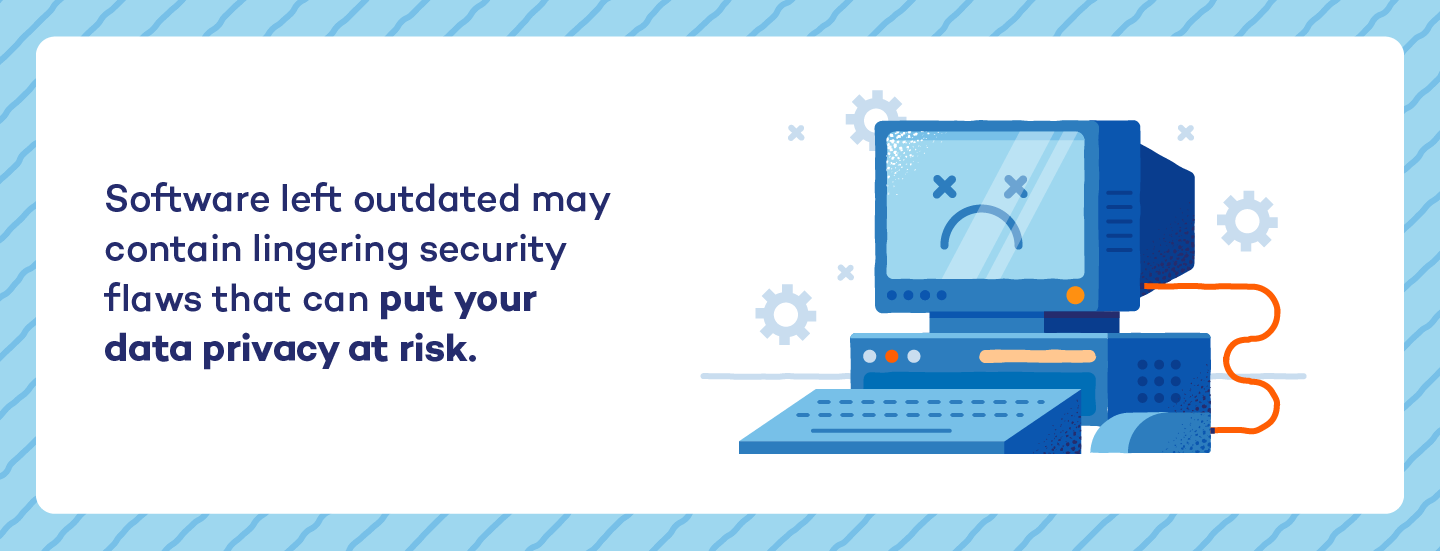
Encrypt Your Data
Encryption works by scrambling your data so that it can’t be read without a private key, which is a surefire way to secure the personal information stored on your devices. Data encryption tools have improved significantly over the years, and the options available today are simple and accessible for the everyday consumer. If you’re not ready to pay for an encryption tool, you can start with a free app like Signal.
Create Strong Passwords
Taking the time to create strong passwords for each of your accounts is a critical security step, especially since passwords are one of the first targets hackers attempt to manipulate and bypass in their schemes. Using a tool like Panda Dome Passwords is a great way to keep your passwords stored, strong and unique across every device and account.
With the constant evolution of our data-driven world, questions of how our data is tracked and collected online will continue to be top of mind for many. While it’s clear Americans are aware that much of their personal information is collected everyday and do harbor concerns over the privacy of their data, our survey indicates there’s still a gap to be bridged when it comes to the level of action they’re willing to take in defense of their privacy.
The value of our digital economy is indisputable, but with every technological advancement comes an added layer of complexity to how we manage and protect our personal data. If you’re looking for ways to strengthen your online security at home, implementing a cross-platform antivirus program that covers all of your devices is a good place to start.
Methodology
This study was conducted for Panda Security using Google Surveys and interpreted by Siege Media. The sample consisted of no less than 1,500 completed responses per question. Post-stratification weighting has been applied to ensure an accurate and reliable representation of the total population. This survey was conducted in August 2021.


